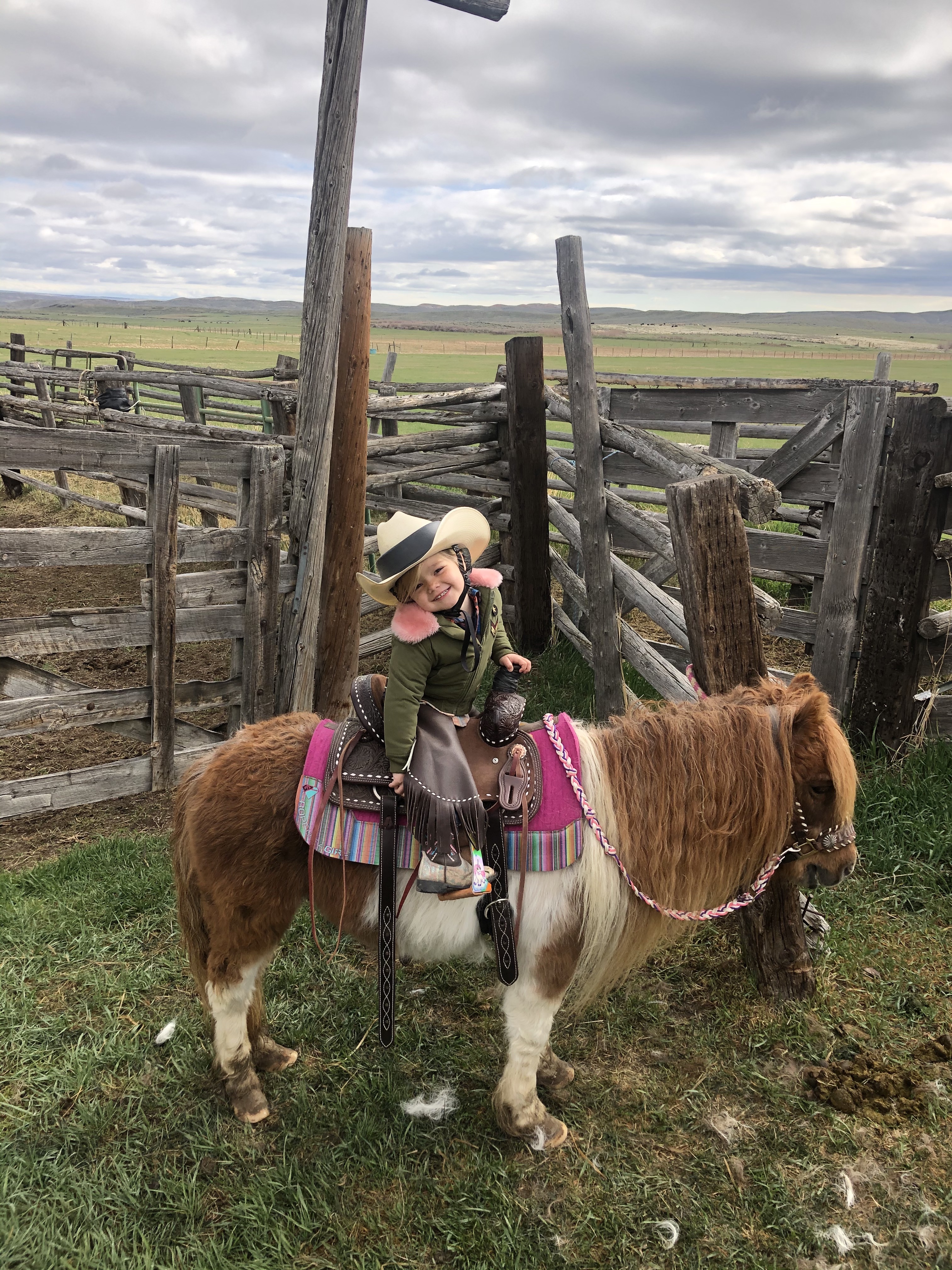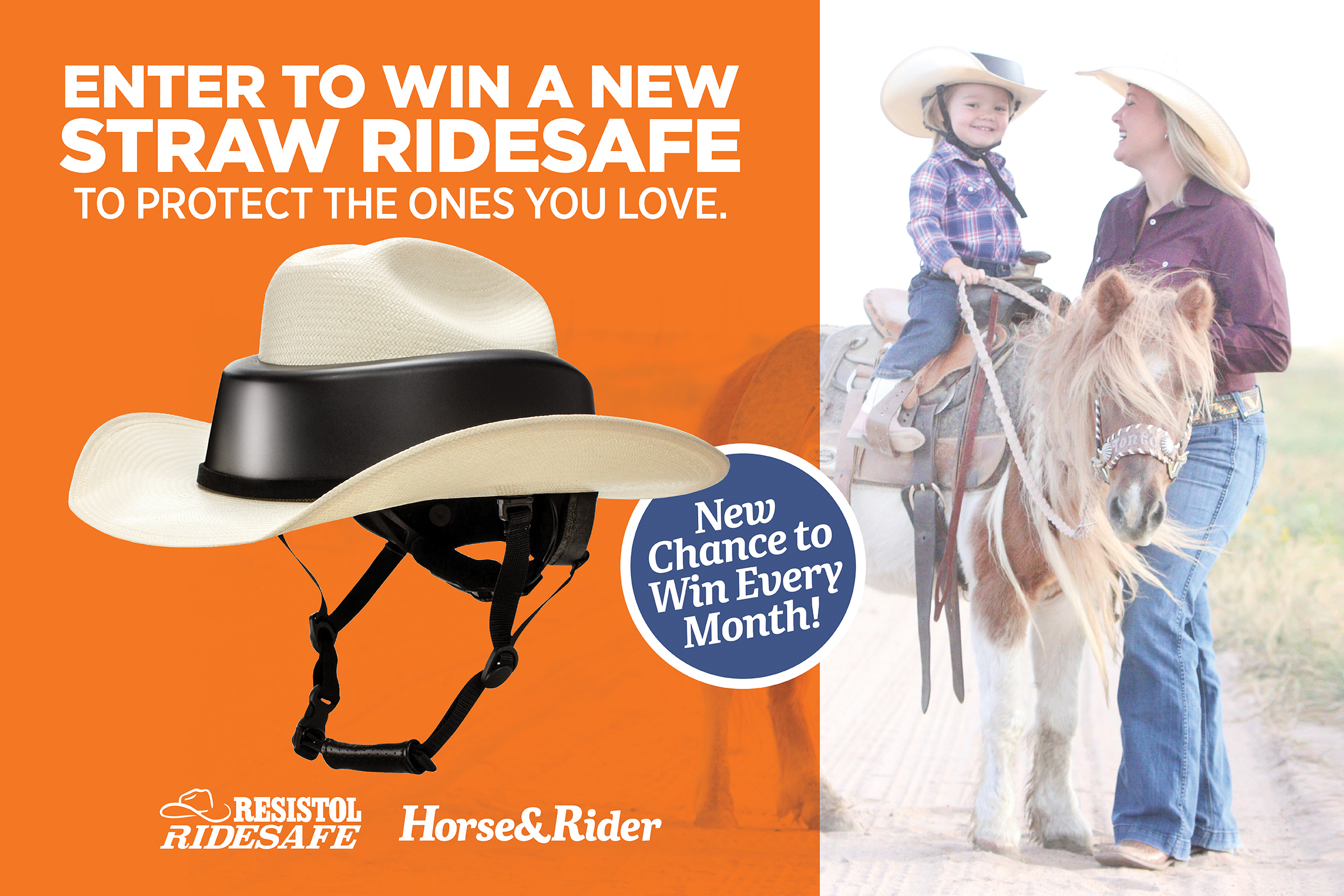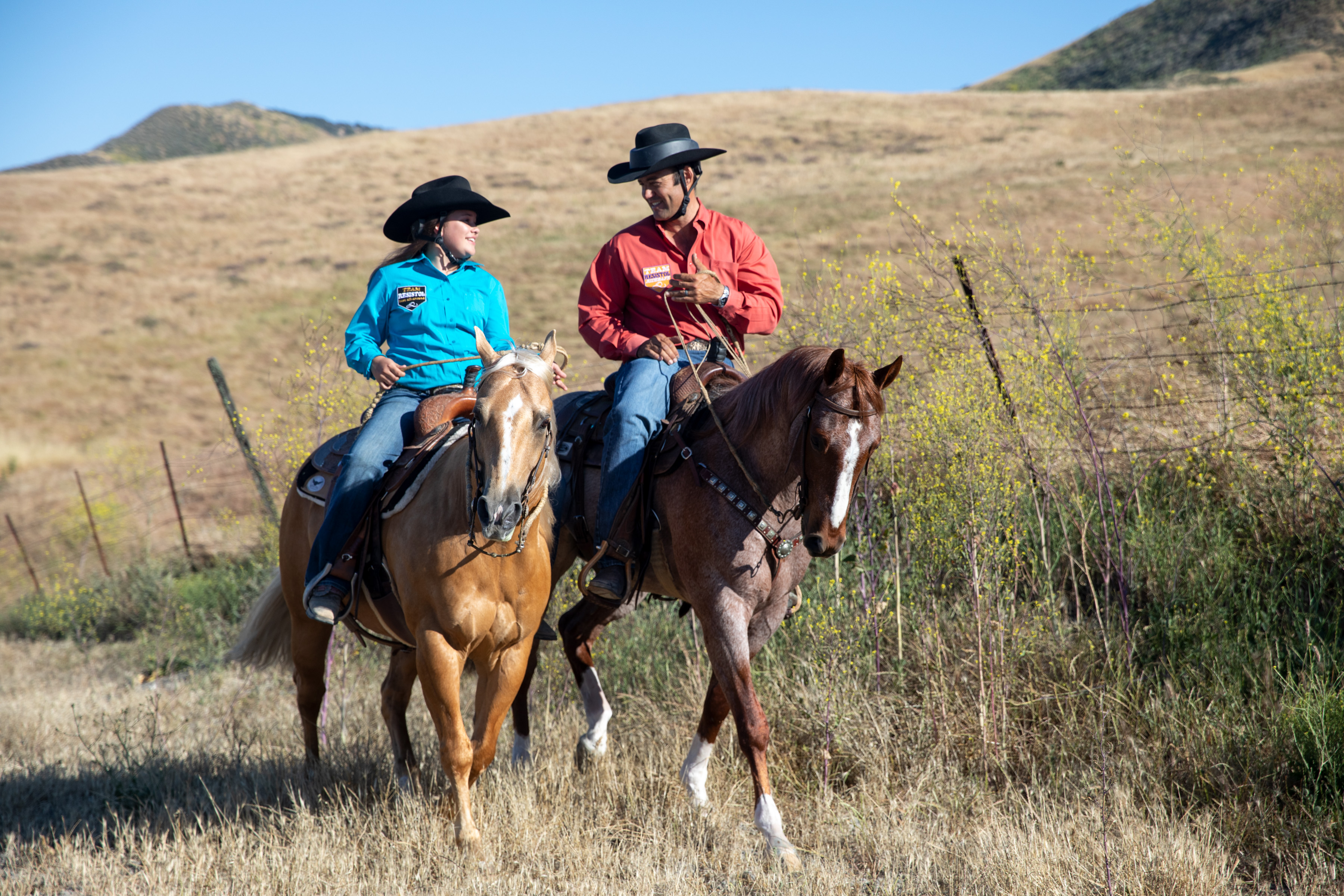I think my daughter was 2 the first time she came off her pony. She was holding onto his mane as I led her ancient pony Tonto around the arena, and she turned to wave at her friends when momentum carried her backward and onto the ground.
Luckily, she was wearing her Resistol RideSafe, and old Tonto’s back is only about two-and-a-half feet from the ground. My little cowgirl is pretty tough, and by then she’d already seen some of her older friends fall off their horses. After a few startled tears and a hug from her mama, she climbed the pipe fence back onto her pony and told me she was ready to go.
That was only a year ago, and as she’s gotten braver and braver and wanted to ride bigger and bigger horses, this mama dreads the day she comes off something a little higher off the ground than Tonto.

Luckily, I’ve got friends who’ve been through more than a few tumbles with their kids, and it’s something we’ve talked about at length.
Our Resistol RideSafe expert Casey Branquinho—who now trains cow horses and rope horses and coaches kids and non-pros in a variety of disciplines—happens to be one of those friends. I called him what he remembers about the first few times his kids came off, and what rules he has in his arenas about getting back on after falling off.

CS: Can you remember back to the first time one of your kids fell off?
CB: Oh yeah. One time I remember very well was with my son when he was about 6. He was riding a horse around our round pen while I was working a horse in our big arena. I could see him and was watching him chase two roping steers around in that round pen, and one steer ducks right and another one ducks left. My son was thinking his horse was following the one going right, when his horse planted his butt and rolled back after the one that ducked left. He did the superman off his horse and hit the ground. I saw him fall, but he didn’t know I was watching. He looked around, dusted himself off, climbed up the fence and got back on. He went straight back to chasing those steers.
CS: So you didn’t run over and make much of a fuss about it?
CB: No, especially if you can tell the kid is not critically hurt by the way they land, I try not to panic them by running in there. I don’t want my kids making a big deal out of it. It’s one of those life lessons horses teach us. No matter how good you are or what you do on a horse, whether you’re Dan Mortensen or Ryder Wright riding broncs for a living or a cutting horse trainer or a team roper, you’re going to come off. It’s how you respond to that. It builds value and character. Everybody uses that as a cliché, it’s not how many times you get knocked down, it’s how many times you get back up that counts.

CS: How do you talk to your kids about coming off their horse?
CB: I try to explain to them what happened and assess the situation. I usually explain that it wasn’t the horse’s fault, and that they can’t be scared of the horse. It was something they did. I will make them get back on, and after a while, I’ll let them get off. But getting back on in the first place is really a priority.
CS: And how do you tell if it’s the kid’s fault or the horse’s fault?
CB: I want to assess the situation. Most of the time, it’s the kids’ fault, whether they’ve put themselves in a situation they shouldn’t have or just didn’t stay with their horse. If the horse bucked, I want to figure out why—is that horse sore? Did the back cinch break? I think we talked about that last month on this blog.
CS: Getting back on is really important for the kids’ confidence like you said. If the horse bucked, though, how important is it for someone to get back on the horse?
CB: It’s absolutely essential, especially on a young horse. Now if the kid is handy enough, it’s great for the kid to get back on. But someone needs to get on the horse either way. If it’s a young horse, and his day ends after he bucks someone off, he just learned that he doesn’t have to work very hard. When I was a kid, maybe 7 or 8, we got a couple ranch horses from my aunt and my dad put them in the cowboy string. We had a horse named Gun, and every time he bucked, the cowboy who had him would get scared and jump off. And all he did was teach that horse to buck. He did it for so long with that guy, by the time I started riding him a few years later, he still humped up when you rode him. He just taught him to buck being afraid of him. H&R

